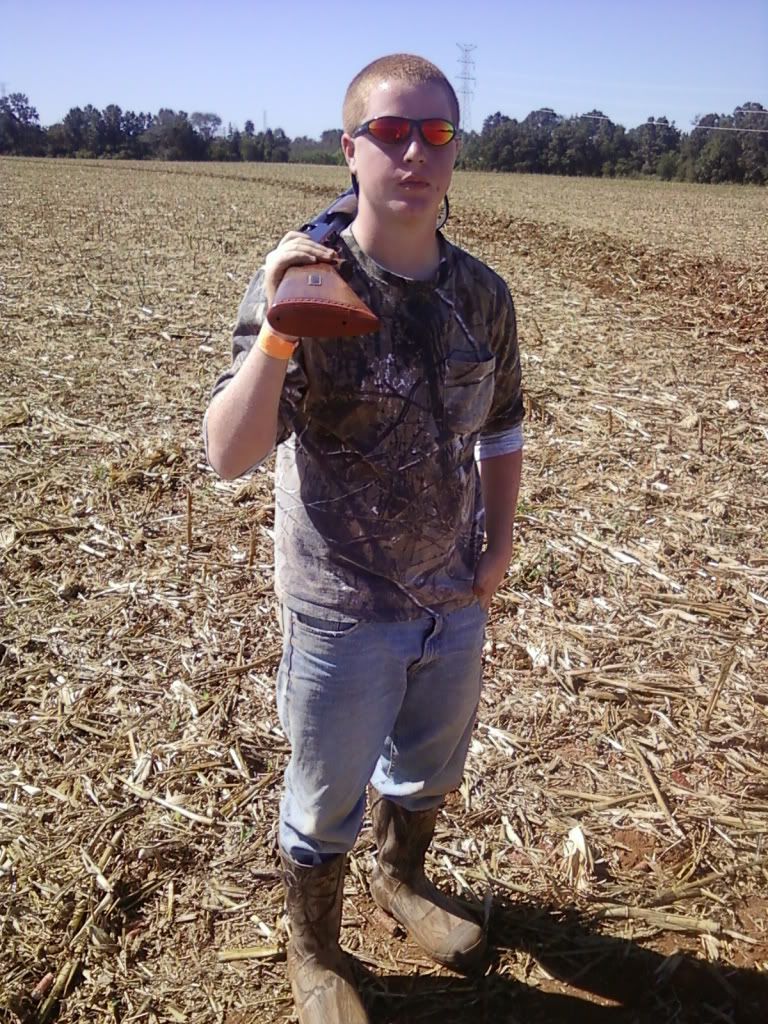Post by Greenedog on Nov 2, 2009 14:13:55 GMT -5
Baiting deer is still illegal
With deer firearm hunting season just around the corner (Nov. 14-29), the DNR Division of Law Enforcement's conservation officers remind hunters that they will be watching for violators of the fair chase law, specifically as it applies to baiting.
Despite heavy commercial promotion on some hunting television shows, extensive sales of such products at some sporting goods stores, and evidence of the use of some of these products on some DNR properties, baiting for the purposes of hunting deer remains illegal. "Bait" is best described as anything a deer (or other wildlife) might ingest or lick.
"It has been a long standing practice for our officers to enforce the hunting over bait rule," said Lt. Mark Farmer, public information officer for DNR Law Enforcement. "Gaining an advantage over your quarry by the use of a food or mineral product is illegal.
"The definition of hunting over bait is, if a hunter could take an animal while visiting the bait site, with the firearm or archery equipment that the hunter is hunting with at the time, it would be considered hunting over bait.”
It is legal to place food products or mineral blocks in the wild, but hunting near them is illegal.
"If a person had put out a feeder or other bait during the summer months to attract wildlife to his property, it must be totally removed 10 days prior to the opening of the hunting season before a hunter could legally hunt in that area," Farmer said.
Odor differs from bait. Deer lures in the form of scents are legal to use when hunting.
"Basically, if you place corn, apples, salt or mineral blocks or anything that isn't grown in the area and hunt there, it's illegal," Farmer said. "Hunting from an apple tree is legal, but placing apples under your tree stand would place you in conflict with current Indiana Law."
Violators apprehended while hunting over bait will face a Class C Misdemeanor charge, and upon conviction could face criminal penalties of up to $500 fine, 60 days incarceration and possible loss of hunting equipment upon conviction.
For more information: Lt. Mark Farmer (317) 232-0658
With deer firearm hunting season just around the corner (Nov. 14-29), the DNR Division of Law Enforcement's conservation officers remind hunters that they will be watching for violators of the fair chase law, specifically as it applies to baiting.
Despite heavy commercial promotion on some hunting television shows, extensive sales of such products at some sporting goods stores, and evidence of the use of some of these products on some DNR properties, baiting for the purposes of hunting deer remains illegal. "Bait" is best described as anything a deer (or other wildlife) might ingest or lick.
"It has been a long standing practice for our officers to enforce the hunting over bait rule," said Lt. Mark Farmer, public information officer for DNR Law Enforcement. "Gaining an advantage over your quarry by the use of a food or mineral product is illegal.
"The definition of hunting over bait is, if a hunter could take an animal while visiting the bait site, with the firearm or archery equipment that the hunter is hunting with at the time, it would be considered hunting over bait.”
It is legal to place food products or mineral blocks in the wild, but hunting near them is illegal.
"If a person had put out a feeder or other bait during the summer months to attract wildlife to his property, it must be totally removed 10 days prior to the opening of the hunting season before a hunter could legally hunt in that area," Farmer said.
Odor differs from bait. Deer lures in the form of scents are legal to use when hunting.
"Basically, if you place corn, apples, salt or mineral blocks or anything that isn't grown in the area and hunt there, it's illegal," Farmer said. "Hunting from an apple tree is legal, but placing apples under your tree stand would place you in conflict with current Indiana Law."
Violators apprehended while hunting over bait will face a Class C Misdemeanor charge, and upon conviction could face criminal penalties of up to $500 fine, 60 days incarceration and possible loss of hunting equipment upon conviction.
For more information: Lt. Mark Farmer (317) 232-0658











 Just another night at work for me and Monty will be back here again bright and early.
Just another night at work for me and Monty will be back here again bright and early. 



